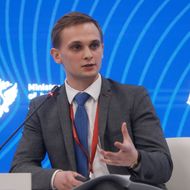- A
- A
- A
- ABC
- ABC
- ABC
- А
- А
- А
- А
- А
- HSE University
- Faculty of Law
- School of International Law
- Fundamental Research Project "Legal Mechanisms for Overcoming Inequality"
-
School
- About the School
- Research
- Academics
- "HSE University Journal of International Law"
-
Research and Study Laboratories and Groups
-
Research and Study Laboratories
-
Research and Study Groups
-
- Research and Methodology Units
- HSE Research Seminar on International Law
- Ph.D. Seminar
- Undergraduate track ‘International Law’
-
Projects
-
Status: active
- Applied project «Philip C. Jessup international law moot court competition training 2023-2024»
- Applied project 2024-2025 “Preparation for the Willem C. Vis Moot Competition, season 2024-2025”
- Fundamental Research Project "Legal Mechanisms for Overcoming Inequality"
- Participation of Young Lawyers as Clerks of the International Commercial Arbitration Court at the Chamber of Commerce and Industry of the Russian Federation
- Research project: International Competition ‘Dispute Resolution in the EAEU–2024’: Preparation and Participation of the Faculty of Law's Team
-
Status: completed
-
- Staff Members
-
Educational programs
- Bachelor's Programmes
- Master's Programmes
- Doctoral School of Law
Moscow, 3 Bolshoy Trekhsvyatitelsky Pereulok, rooms 227, 228b

E-mail: svetlana.smirnova@hse.ru
Fundamental Research Project "Legal Mechanisms for Overcoming Inequality"
Staff and PhD students of the School of International Law participate in the fundamental research project 2024 "Legal Mechanisms for Overcoming Inequality"
The project "Legal Mechanisms for Overcoming Inequality" is aimed at a comprehensive consideration of the phenomenon of inequality in the aspect of creating an effective legal system. The analysis of existing types and forms of inequality, including social, economic, informational, spatial, etc., implies the study of the causes, conditions, prerequisites and consequences of the manifestation and legal consolidation of inequality in human society.
The study of inequality in the increasingly accelerating transition to the information (post-industrial) society is impossible without taking into account the role played by information and communication technologies (hereinafter - ICT). The importance of these technologies can hardly be overestimated. Increasing the welfare of the population, quality of life and work, improving the availability and quality of public services, health care and education are inextricably linked to the level of international and national information security, as well as the availability of the Internet and the corresponding infrastructure. Hence, modern social and economic "ruptures" in society are fully or partially informational in nature. Meanwhile, the processes of lawmaking, interpretation, and law enforcement that form the "normative field" are in the stage of rapid development, and this development does not always take into account the need to address the problem of inequality. Instead, the dominant paradigm is the "military" paradigm, the abuse of which leads to the aggravation of inequality as an inevitable outcome of militarization.
In this regard, the project will analyze the most complex theoretical issues of the emergence and manifestation of inequalities in the ICT environment, related, inter alia, to inclusiveness, respect for sovereignty and non-interference in domestic affairs in "cyberspace"; political and legal attribution of responsibility of states for cyber operations; application of international law to relations in the ICT environment by analogy and/or its progressive development.
Staff and PhD candidates and students of the School of International Law participating in the project:
Head
Lecturer

Research Assistant

Research Assistant

Research Assistant
Oleg Kondrashov
Roman Abrashin
- About
- About
- Key Figures & Facts
- Sustainability at HSE University
- Faculties & Departments
- International Partnerships
- Faculty & Staff
- HSE Buildings
- Public Enquiries
- Studies
- Admissions
- Programme Catalogue
- Undergraduate
- Graduate
- Exchange Programmes
- Summer Schools
- Semester in Moscow
- Business Internship
-
https://elearning.hse.ru/en/mooc/
Massive Open Online Courses
-
https://www.hse.ru/en/visual/
HSE Site for the Visually Impaired
-
http://5top100.com/
Russian Academic Excellence Project 5-100
- © HSE University 1993–2025 Contacts Copyright Privacy Policy Site Map
- Edit


